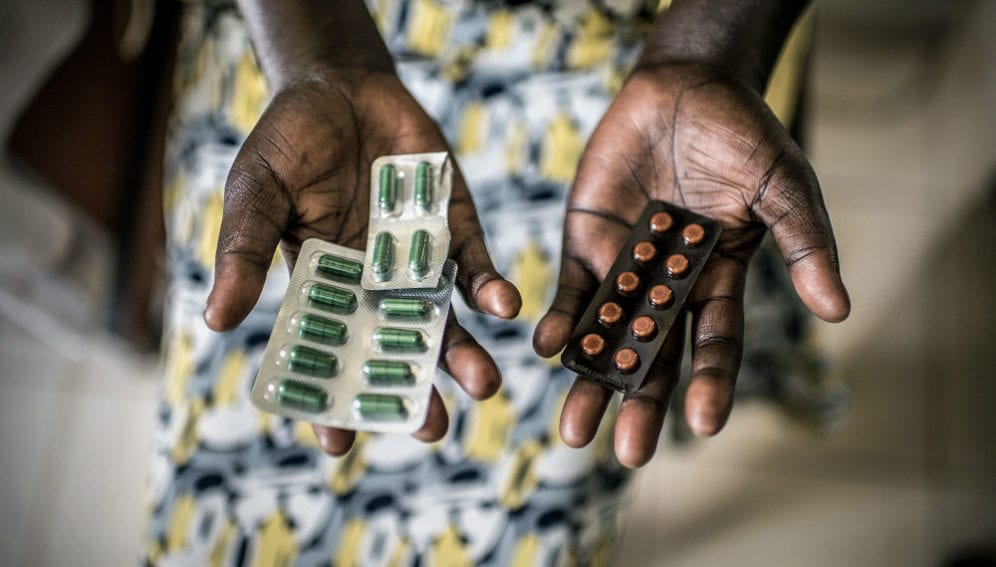By: Ochieng’ Ogodo
Send to a friend
The details you provide on this page will not be used to send unsolicited email, and will not be sold to a 3rd party. See privacy policy.
The rising threat of antibiotics resistance in the Sub-Saharan Africa region is making interventions at policy and medical levels urgent, scientists say.
According to Céline Langendorf, an epidemiologist with the Epicentre, MSF, “More and more patients die because of ineffective antibiotics. The entire population, including health professionals, must become aware of this problem and rationalise the use of antibiotics to prevent the spread of these [antibiotic-resistant] bacteria.”
“This is not only a problem of high-income countries. [There is a need for] access to second- and third- line antibiotics in hospitals, development of an efficient antibiotics resistance surveillance network at country level where there is none, and implementation of antibiotics stewardship training and monitoring in hospitals and medical universities,” she says.
“More and more patients die because of ineffective antibiotics. The entire population, including health professionals, must become aware of this problem”
Céline Langendorf, MSF
There is also scarce data on antibiotics resistance surveillance in Sub-Saharan Africa that needs to be addressed urgently through research and development, Langendorf told SciDev.Net in an exclusive interview last month (24 February).
African policymakers, she says, need to implement communication campaigns and training programmes for health personnel and veterinarians to take measures to stem the global problem of antibiotics resistance.
Langendorf who was also one of the resource persons during the 1st Scientific Day in Niger organised by the Epicenter, the research arm of the Médecins Sans Frontières (MSF), on 24 January, says that there is an alarming trend of antibiotics resistance in Niger in the past ten years, leading to more complex bacterial infections requiring expensive second-line treatments.
Their studies carried between 2007 and 2017 found that the level of antimicrobial resistance in Niger during that period had increased due to multifactorial reasons including a high selective pressure by misuse of antibiotics.
“Our findings fill the gaps and open awareness on highly resistant infections becoming real in the region.”
“The objective of the two studies was to estimate the prevalence of community-acquired bloodstream infections and antibiotics resistance among children under five years suffering from complicated severe acute malnutrition and hospitalised in intensive therapeutic and feeding centre (ITFC),” Langendorf tells SciDev.Net.
Both studies, she explains, were prospective and descriptive. Researchers collected blood culture samples for all children at time of admission in the ITFC and performed antibiotics susceptibility testing.
The researchers found high level of resistance to the antibiotics amoxicillin and cotrimoxazole. In ten years, they found an increase of resistance of amoxicillin-clavulanate from three to 27 per cent and ceftriaxone from three to nine per cent among bacteria called Enterobacter species that were isolated from blood samples.
According to Coline Mahende, principal research scientist, at Tanzania’s National Institute for Medical Research, misuse of antibiotics by consumers and health workers’ tendency to treat infections based on symptoms rather than using confirmatory diagnostic tools contribute to antibiotics resistance.
“Antibiotics resistance is a major [health problem] and increasing threat to Sub-Saharan Africa. This is because of the high burden of infectious diseases that are highly contributed by poverty,” Mahende tells SciDev.Net, adding that lack of policies for controlling the use of antibiotics in humans and animals is also a contributory factor to the rise of antibiotics resistance.
Efforts should be put in place for control and prevention measures such as immunisation, public health education on personal hygiene, availability of safe water and sanitation, according to Mahende.
This piece was produced by SciDev.Net’s Sub-Saharan Africa English desk.














